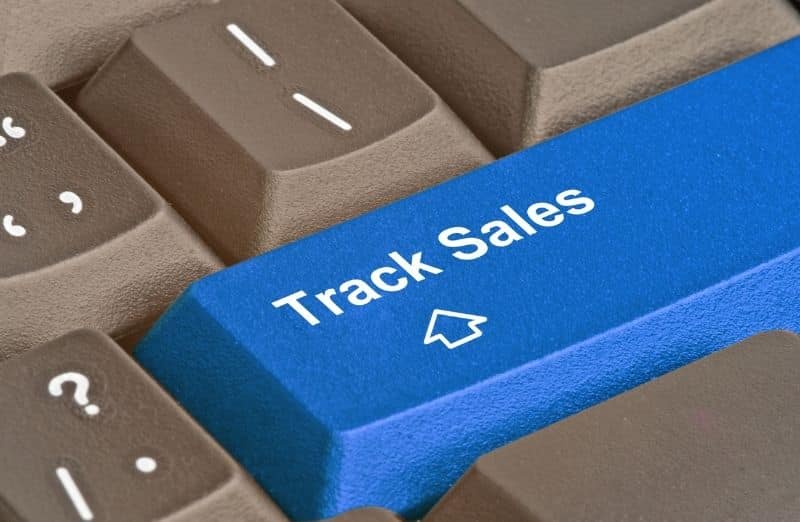In this article, we’re going to show you how motivating salespeople in 2025 can enhance productivity and engagement within your team.
2024 is officially over. It’s time to step into the brave new world of 2025.
If you’re a sales team manager, you probably have a lot on your plate already. From meeting quotas to cleaning up your pipeline, your to-do list might be overwhelming (and January isn’t over yet).
After all, your success depends on their performance! Let’s take a look!
Understanding Sales Motivation
Sales motivation is a crucial aspect of driving sales success. It refers to the internal and external factors that inspire sales teams to achieve their goals and perform at their best. Understanding sales motivation is essential for sales managers to develop effective strategies that boost sales performance, increase job satisfaction, and reduce turnover. By recognizing the unique motivations of each team member, sales managers can tailor their approach to meet the diverse needs of their sales team.

Sales motivation can be influenced by various factors, including personal goals, career aspirations, financial rewards, recognition, and a sense of accomplishment. Sales teams are often driven by a desire to succeed, and sales managers can tap into this motivation by setting clear goals, providing regular feedback, and offering opportunities for growth and development. Additionally, sales managers can use incentives and rewards to motivate their sales teams, such as bonuses, commissions, or recognition programs.
What Do Salespeople Need for Sales Motivation?
Back in the day, we thought that the best way to motivate your sales reps was to give them more money.
Now, this still works for some.
However, recent research found that there are 5 things people need to be happy and motivated at work:
- They need to feel like they are accomplishing something.
- They need positive reinforcement.
- They need good relationships with their co-workers.
- They need a degree of autonomy in their roles.
- They need to feel like they are part of something that makes them proud.

Then consider Harvard Business Review’s research on workplace motivation traps:
- Values mismatch (“I don’t care enough to do this”)
- Lack of self-efficacy (“I don’t think I have the skills to do this”)
- Disruptive emotions (“I’m too upset to do this”)
- Attribution errors (“I don’t know what went wrong with this”)
The key to motivating your sales team in 2025 is understanding what is demotivating them.
And now, it’s time to push the pedal to the metal and make sure your reps are engaging with their jobs:
Involve Your Salespeople in Research and Sales Strategy to Motivate Them
Since your salespeople need to feel a sense of accomplishment, autonomy, and pride, the best way to motivate them in 2025 is to involve them in research and planning.
When you are creating your sales motivation strategy and sales strategy for the next quarter, include your salespeople in the process.
Discuss goals with your reps, and let them help you shape strategies.
This has twofold benefits: your salespeople are the ones communicating with your (potential) customers so they know what works, and they’ll know their opinion is valued.

If you’re conducting customer/audience research, make some time for your reps to pitch in*.*
You could even give them research-related tasks, which will help them spice up their work routine.
Your reps can help you create an exceptional sales experience, which is a significant decision-making factor for your prospects.
Encourage your reps to consider:
- Problems and issues your customers might be facing without being aware of it
- Additional sales and product opportunities
- Other possible solutions
Focus on the Sales Process with Gamification
Your sales success depends on the quality of your sales process.
However, the process is often considered to be routine. You don’t give it much thought, and neither do your employees. But if the process is too tedious and there are no improvements and changes, it could lead to values mismatch.
Your salespeople won’t care enough to complete the tasks needed to successfully close deals.
Gamification can help you:
- Make routine processes more fun
- Identify problems in your sales process
- Improve your sales process and the way your salespeople perceive it
Spinify helps you motivate your salespeople in 2025 by giving them points for performing routine tasks, setting up fun competitions, and allowing them to redeem points for rewards.

It’s really one of the easiest ways to motivate your reps in the upcoming year.
Additionally, Spinify gamification increases transparency.
If you can identify the most important actions, improving your sales process will be a piece of cake!
Implement Coaching and 1-on-1s for Sales Goals
Your salespeople need to feel a sense of accomplishment and progress in their roles in order to stay motivated.
In 2025, motivate your salespeople by coaching them, and helping them achieve their personal and professional goals.
As a sales leader, arrange one-on-one meetings at the beginning of the year, and discuss every salesperson’s goals with them.
Help them create a plan for achieving their goals and improving their skills by the end of the year.

Make sure you check in on them every few months to see how their goals are coming along.
Give them clear feedback on their skills, and help them improve. It’ll show them that you care about them as professionals, not just quotas.
When it comes to workplace performance, ensure that your salespeople are staying motivated with Spinify.
Our tool will help you track their performance, as well as give you coaching insights for each rep on your team.
AI Sales Coaching: Revolutionizing Motivation and Performance
Artificial Intelligence is reshaping the way sales teams are coached and motivated. AI-driven tools, like Spinify’s AI Coaching Agent, provide real-time insights into performance metrics and deliver personalized coaching tailored to individual needs. This technology allows managers to pinpoint strengths, address weaknesses, and offer actionable recommendations without delay. The result? Salespeople feel more supported and empowered to reach their goals. Additionally, AI removes bias from coaching, ensuring every team member receives fair and consistent guidance, which boosts confidence and fosters motivation.

Unconventional Motivation: Adding Fun to the Workplace
Sometimes, the key to unlocking a team’s potential lies in thinking outside the box. Creating a lively, engaging environment through unconventional motivators like playing upbeat music in the office, organizing team games, or even hosting office Olympics can dramatically lift spirits. These activities break up the monotony of the workday, promote camaraderie, and give employees an opportunity to bond in ways that go beyond professional interactions. These lighthearted initiatives keep energy levels high, reduce stress, and remind the team that work can be both productive and fun.
Help Your Reps Understand What They’re Selling
If you want your sales professionals to feel motivated, they’re going to need to feel personally involved. Their values have to match those of your company and your product.
In 2025, help your reps understand what they’re selling:
- What problems are your customers struggling with, and how does that reflect on their lives?
- How do your salespeople help customers recognize and resolve their issues?
- How do your products help your customers with their goals?
- What do your salespeople like about the products?
Additionally, make some room for creativity.
Encourage your reps to think about alternative strategies and additional solutions. Help them feel like the heroes of the product, doing their work to help your customers daily.
How Spinify Helps You Motivate Your Salespeople in 2025
You can’t improve something that you can’t see.
Spinify offers a great way to motivate your salespeople and improve their performance.
Start by motivating your reps with points and rewards, and include everyone in the fun contests.
Customize every bit of your sales dashboard to fit your team, and before you know it, you’ll have a sales team addicted to success.
Are you ready to achieve more in 2025?
Incentives and Rewards for Sales Teams
Incentives and rewards are powerful motivators for sales teams. By offering tangible rewards for achieving sales goals, sales managers can encourage their teams to work harder and strive for excellence. Incentives can take many forms, including financial rewards, such as bonuses or commissions, or non-financial rewards, such as recognition or privileges.

When designing an incentive program, sales managers should consider the following best practices:
- Align incentives with sales goals and objectives
- Make incentives achievable and challenging
- Provide regular feedback and recognition
- Offer a mix of financial and non-financial rewards
- Communicate the incentive program clearly and transparently
Some popular incentive programs for sales teams include:
- Sales contests: Competitions that pit sales reps against each other to achieve a specific goal
- Bonus structures: Additional payments for achieving specific sales targets
- Commission plans: Payments based on a percentage of sales revenue
- Recognition programs: Public recognition of sales achievements, such as employee of the month or quarter
Embrace Flexible Work Arrangements
Recognizing that each salesperson has unique peak productivity periods, offering flexible work hours can significantly enhance performance. Allowing team members to choose their working hours enables them to operate when they’re most energized, leading to improved focus and efficiency. This flexibility not only boosts individual productivity but also fosters a sense of trust and autonomy within the team.
Beyond flexible hours, consider implementing remote work options or hybrid models that allow salespeople to work from locations where they feel most comfortable and productive. This adaptability can lead to enhanced work-life balance, reducing burnout and increasing overall job satisfaction. Additionally, providing the necessary tools and technology for remote work ensures seamless communication and collaboration, keeping the entire team connected and engaged.
Flexible work arrangements also open up opportunities for sales managers to tap into a wider talent pool, as geographical constraints become less of a barrier. This can lead to a more diverse and dynamic sales team, bringing in varied perspectives and ideas that can drive innovation and growth. By embracing these contemporary work models, sales leaders can create an environment that not only attracts top talent but also retains them, reducing employee turnover and fostering long-term success.
Implement Gamification Techniques
Introducing game-like elements into the sales process can make routine tasks more engaging. Utilizing leaderboards, badges, and friendly competitions fosters healthy competition and camaraderie among team members. Gamification transforms mundane activities into exciting challenges, motivating salespeople to achieve their targets while enjoying the process.
To further enhance the impact of gamification, consider integrating personalized challenges that align with individual sales reps’ strengths and career aspirations. This can help drive motivation by allowing team members to showcase their unique skills and talents. Additionally, incorporating real-time feedback and progress tracking can provide immediate recognition and a sense of accomplishment, further boosting motivation.

Moreover, gamification can be extended beyond individual achievements to include team-based competitions. This not only encourages collaboration and team spirit but also helps in building a supportive sales culture where team members inspire and learn from each other. By celebrating both individual and team successes, sales managers can foster an environment of continuous improvement and shared goals.
Finally, leveraging technology to automate and manage gamification elements ensures seamless integration into the daily workflow, making it easier for sales managers to track progress and make data-driven decisions. By consistently evolving and adapting gamification strategies, sales leaders can maintain high levels of engagement and motivation across their entire sales force.
Provide Continuous Learning Opportunities
Investing in ongoing training programs ensures that your sales team remains adept with the latest industry trends and sales techniques. Offering workshops, seminars, and access to educational resources fosters a culture of continuous improvement. This commitment to personal and professional growth not only enhances skills but also demonstrates to your team that their development is a priority, leading to increased motivation and job satisfaction.
In addition to traditional training methods, consider leveraging digital platforms and e-learning tools to provide flexible learning options. Online courses, webinars, and virtual training sessions allow sales team members to learn at their own pace and convenience, accommodating different learning styles and schedules. This flexibility can be particularly beneficial for remote or hybrid teams, ensuring that all team members have equal access to learning opportunities.

Moreover, encourage a culture of knowledge sharing within the team. By facilitating regular team meetings or ‘lunch and learn’ sessions, sales professionals can share insights and experiences, fostering a collaborative learning environment. Peer mentoring programs can also be a valuable addition, pairing seasoned sales reps with newer team members to provide guidance and support.
Recognize and celebrate learning milestones to further motivate your sales team. Acknowledging achievements, such as completing a certification or mastering a new skill, reinforces the importance of continuous learning and encourages ongoing participation. By integrating these strategies, you can cultivate a motivated, dynamic, and high-performing sales team ready to excel in today’s competitive market.
Measuring and Tracking Sales Motivation
Measuring and tracking sales motivation is essential to understanding the effectiveness of sales motivation strategies. By monitoring key performance indicators (KPIs), sales managers can identify areas for improvement and adjust their approach to optimize sales performance.
Some common KPIs for measuring sales motivation include:
- Sales revenue and growth
- Sales conversion rates
- Sales cycle length
- Sales team engagement and satisfaction
- Sales team turnover and retention

Sales managers can use various tools and techniques to measure and track sales motivation, including:
- Sales analytics software: Tools that provide insights into sales performance and behavior
- Surveys and feedback: Regular feedback from sales teams to understand their motivations and concerns
- Sales performance metrics: Tracking key sales metrics, such as sales revenue and conversion rates
- Sales team assessments: Evaluating the skills and knowledge of sales teams to identify areas for improvement
By regularly measuring and tracking sales motivation, sales managers can refine their approach and develop targeted strategies to boost sales performance and drive business success.
Sales managers can use various tools and techniques to measure and track sales motivation, including:
Wrapping Up: Your Journey to Sales Motivation Success
In conclusion, motivating salespeople is a multifaceted challenge that requires a strategic approach. By understanding the unique motivations of your sales team, involving them in sales strategy, and using tools like gamification and personalized coaching, you can significantly boost sales performance. Remember, a motivated sales team is a successful sales team.
To see how these strategies can be implemented effectively, book a demo with Spinify today. Discover how our platform can transform your sales process, engage your team, and drive growth in 2025 and beyond. Take the first step towards achieving unparalleled sales success—schedule your demo now!



